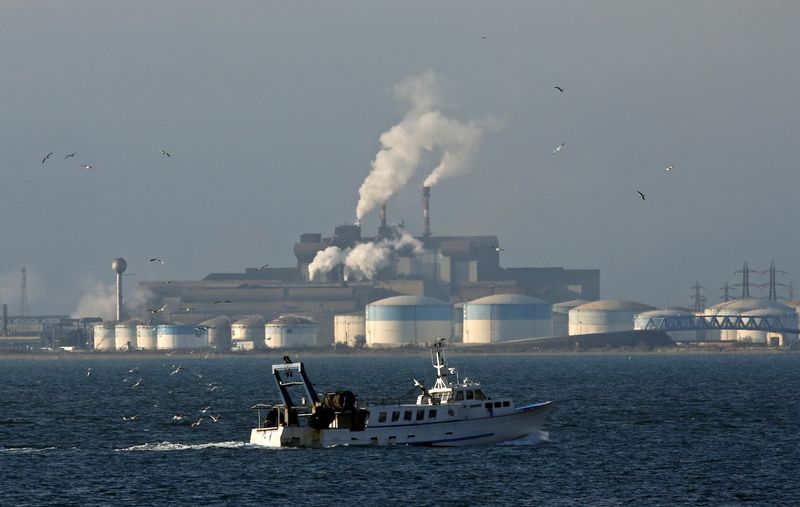By Katya Golubkova
TOKYO (Reuters) – Oil prices fell on Thursday, reversing gains in the previous session, after OPEC showed no signs of supporting Iran’s call for an oil embargo on Israel and as the United States plans to ease Venezuela sanctions to allow more oil to flow globally.
futures for December fell 74 cents to $90.76 a barrel. U.S. West Texas Intermediate (WTI) futures for November, which expires on Friday, dropped 57 cents to trade at $87.75 per barrel. The more active December WTI was down 51 cents to $86.76 a barrel at 0047 GMT.
Oil prices climbed about 2% in the previous session on concerns about disruptions to global supplies after Iran called for an oil embargo on Israel over the conflict in Gaza and after the U.S., the world’s biggest oil consumer, reported a larger-than-expected inventory draw, adding to already tight supplies.
The Organization of the Petroleum Exporting Countries (OPEC) is not planning to take any immediate action on OPEC member Iran’s call, sources told Reuters, easing concerns over potential oil flow disruptions.
“Although OPEC shows no indication of taking up Iran’s call to impose an oil boycott on Israel, oil will almost certainly become a feature of the conflict in several ways,” RBC Capital Markets said in a note.
Israel imports about 250,000 barrels per day (bpd) of oil, mainly from Kazakhstan, Azerbaijan, Iraq and African countries, analysts at Citi said in a note. “We believe an embargo from Kazakhstan and Azerbaijan, a strong Israeli ally, is unlikely,” they said.
The United States issued a six-month license authorizing transactions in Venezuela’s energy sector, an OPEC member, after a deal was reached between the Venezuelan government and the country’s political opposition to ensure fair 2024 elections.
Venezuela’s oil flows could help to ease global oil prices, up amid the Israel-Hamas conflict, sanctions on Russia and OPEC+ decisions to reduce output, but Venezuela needs investments to boost output following years of sanctions.
oil and fuel inventories dropped last week on rising demand for diesel and , according to data from the Energy Information Administration. Distillate fuel stockpiles fell by 3.2 million barrels in the week to Oct. 13 to 113.8 million barrels, EIA data showed.
Crude inventories fell by 4.5 million barrels to 419.7 million barrels, while gasoline fell by 2.4 million barrels to 223.3 million barrels.
Supply may tighten further as Russia’s oil exports via its western sea ports in November are seen falling by some 300,000 bpd as domestic refineries are expected to raise runs as seasonal maintenance ends, sources told Reuters.
Read the full article here



